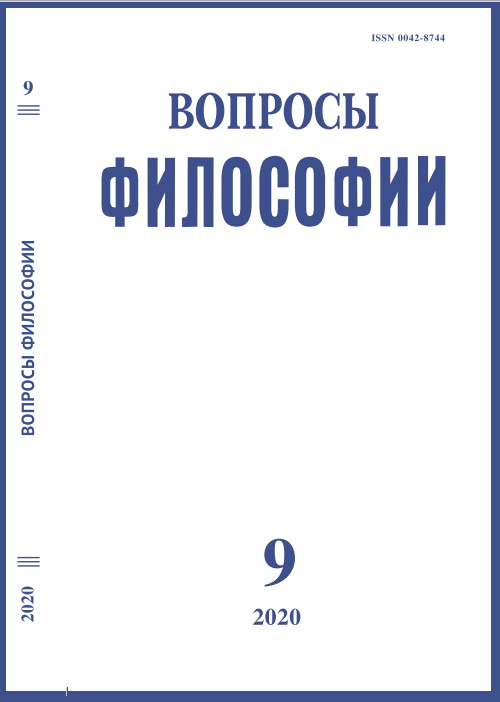Aleksei Losev and Yuly Aykhenvald: on the History of Biographical and Aesthetic Convergence
DOI:
https://doi.org/10.21146/0042-8744-2020-9-150-165Keywords:
Aleksei Losev, Yuly Aykhenvald, philosophy, literary criticism, impressionism, dogmatism, prose, methodology, aesthetic, cultureAbstract
The paper is the first to touch on an issue of Aleksei Losev’s incorporation of aesthetic ideas and methods of Yuly Aykhenvald (1872‒1928), Russian impressionist literary critic, by revealing the biographic ground of this influence that included probable personal encounters in the philosophical coteries, contacts with Aykhenvald’s son Boris, and the mediating role of the philosopher Nikolai Samsonov. The paper introduces into scholarly discourse Aykhenvald’s review of the Losev’s debut 1916 article “The Two World Perceptions” embracing Solovyovian sophiological focus, which will be pursued by Losev in his 1930s philosophical prose on music. The author highlights the convergence of interests of Aykhenvald and Losev, as both were fascinated by Schopenhauer and Oscar Wilde. The paper also deals with Losev’s efforts to embrace Aykhenvald’s methodology for both creating his own aesthetic theory and comprehending the discussion of impressionism, dogmatism and sociological problems within the latest aesthetic theories (Charles Lalo). The author proves that Losev’s “mythological-physiognomic” method was based not only on Husserl’s phenomenology and Spengler’s cultural morphology, but also on Aykhenvald’s immanent, descriptive-psychological critical perspective, who tried to create a typology of Russian literature, as Losev deemed Aykhenvald one of the greatest Russian 20th century literary critics.

